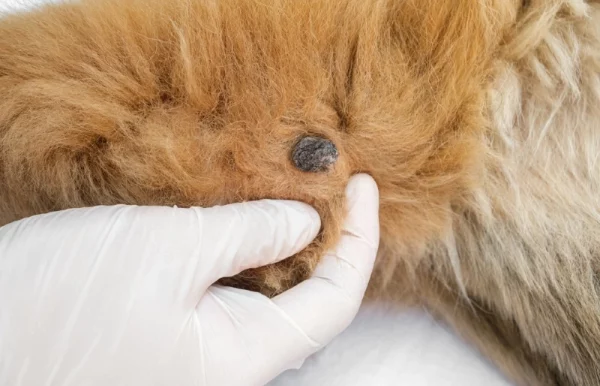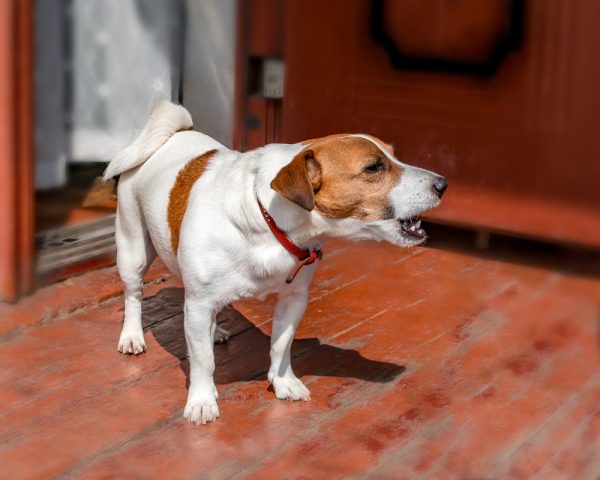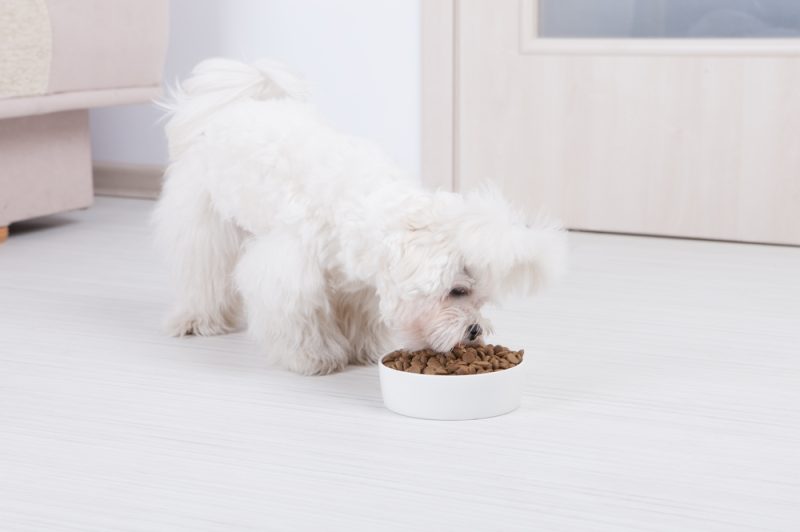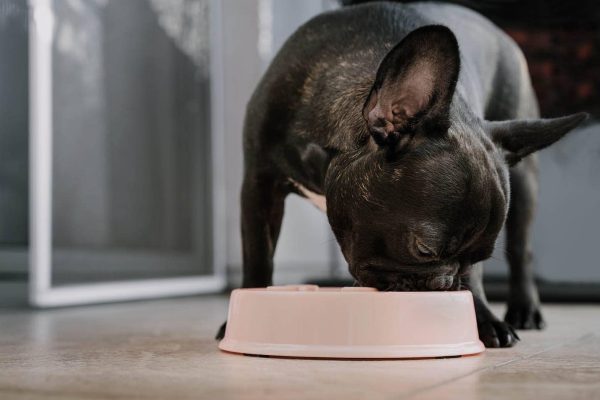Witnessing a seizure episode in your puppy can be distressing and overwhelming. Seizures are caused by abnormal and uncontrolled electrical activity in the brain. They can last anywhere from 10 seconds to several minutes, though it often feels like longer than this in the moment.
What causes seizures in puppies? And what should you do to get them better? This article provides you with an emergency action plan, as well as a discussion of the signs and causes of seizures in puppies.

Here’s What to Do
If your puppy is having a seizure, follow the below five-step guide to give him or her the best chance of recovery:
- Remain calm. This is hard to do, as the seizure event can be dramatic. Stay as calm and quiet as possible, and seek the appropriate help.
- Restrain your puppy. If it is safe for you to do so, try to restrain your puppy so that they don’t injure themselves during the seizure. Place a large blanket around them, and keep them away from any hard objects or sharp corners.
- Contact your vet. Make a call to your vet clinic or nearest emergency vet hospital. Arrange for your puppy to be seen as soon as possible.
- Take a short video. If you’ve done steps 1 to 3, do your best to take a short 5–10-second video of the episode while you are arranging to get your puppy to the vet. If the seizure has stopped by the time you get to the clinic, this will help your veterinarian visualize the event and formulate an appropriate plan.
- Safely transport to the vet. If someone else can drive you, sit with your puppy, gently restraining and comforting them. Drive safely and contact the vet clinic as you are approaching.

What Are the Signs of Seizures in Puppies?
Most people will know a generalized or grand mal seizure when they see one. However, partial seizures or petit mal seizures can also occur, and these can be less obvious.
- Fly-biting or snapping
- Wobbliness or disorientation
- Drooling or foaming at the mouth
- Collapse and non-responsiveness
- Convulsions and muscle spasms
- Paddling and trashing
- Urination and defecation
A vet will be able to advise you on the best course of action to ensure the well-being of your pet.
Did you know you can speak to a veterinarian without having to travel? Just head over to PangoVet. It's our online service where you can talk to a vet online and get the advice you need for your pet — all at an affordable price!
What Are the Causes of Seizures in Puppies?
Seizures are not a diagnosis, but a sign or symptom of disease. Numerous diseases can cause abnormal electrical firing in the brain that leads to seizures. Below are some common causes in puppies:
- Congenital brain disease (such as hydrocephalus)
- Portosystemic shunt (abnormal blood vessels that bypass the liver, causing toxin build-up)
- Low blood sugar levels (common in toy breeds and puppies with anorexia)
- Toxin ingestion (snail bait, illicit drugs, chocolate, coffee, artificial sweeteners, and more)
- Epilepsy (seizures of unknown cause)
- Head trauma (such as contact with a hard object, road-traffic accident, or high-rise fall)
Getting to the bottom of seizures normally requires a combination of blood tests, urine tests, imaging of the brain, and assessment of response to treatment.


Frequently Asked Questions
Is It Normal for Puppies to Have Seizures?
No, it is never normal for a puppy to have a seizure. Seizures are caused by abnormal activity in the brain. If your puppy is having a seizure, he or she needs urgent veterinary attention.
Can Puppies “Grow Out” of Seizures?
No, puppies cannot grow out of their seizures. They can make a recovery from their seizure episode if the seizure was caused by low blood sugar levels, toxins, or head trauma. Medical and surgical options exist for hydrocephalus and portosystemic shunts, with mixed results.
Epilepsy is a disease that needs to be managed for life; most epileptic dogs will have another seizure at some point in their life.
How Do Vets Treat Puppies with Seizures?
The first step is to stop the seizures and stabilize the dog. This often requires anticonvulsant medications, intravenous fluids (via a drip), active cooling, and as little stimulation as possible. Further treatments are directed at the underlying cause and are beyond the scope of this article.


Conclusion
Seizures in dogs can be scary; they’re not something any puppy owner wishes to see. Some dogs will also be very disoriented before and after the seizure. If your puppy has had a seizure, follow the above five-step action plan. Seek veterinary care immediately and discuss all diagnostics and treatments with your vet.
Featured Image Credit: ARVD73, Shutterstock



















